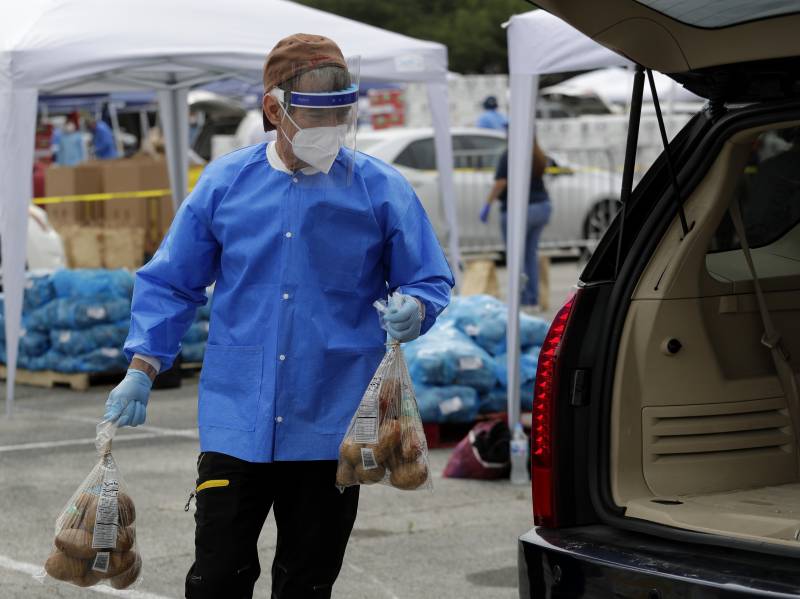Two years ago, about 12% of American households reported they didn't have enough food. Since the COVID-19 pandemic began, that number has nearly doubled. It's even more severe for Black and Hispanic families.
Texas Public Radio's Paul Flahive reports on a giant food bank in San Antonio that can barely keep up with the growing demand.
Experts say the problem of food insecurity in America needs longer-term solutions. Erthain Cousin, former U.S. Ambassador to the Food and Agriculture Organization of the United Nations, tells NPR's Michel Martin the country needs to think bigger than food banks and start investing in businesses that can improve nutrition in low-income communities.
And Jim Carnes of Alabama Arise, an organization working to end poverty in Alabama, explains that food insecurity goes hand in hand with poverty. And the main factor driving poverty in the U.S.? Medical expenses.
Listen to a special episode of All Things Considered all about food insecurity during the pandemic.

9(MDAxOTAwOTE4MDEyMTkxMDAzNjczZDljZA004))